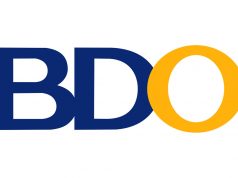Clear but adaptive regulations on blockchain sought
By Melissa Luz T. Lopez, Senior Reporter
REGULATORS should adopt a clear but adaptive set of rules on the use of blockchain, industry experts said, with the Philippines currently well-positioned to be a global leader in adopting the new technology.
Justo A. Ortiz, president of the Blockchain Association of the Philippines, said the emerging industry needs “legal and regulatory clarity” to unlock wider use, which in turn will attract new players and prompt traditional firms to embrace the innovation.
“That’s clearly one of the important underpinnings of a blockchain ecosystem… Regulation, law is an important part for mainstream businesses to get into the blockchain economy,” Mr. Ortiz said in a media roundtable yesterday at the Manila House in Taguig.
Blockchain makes use of fully-digital and decentralized ledgers to record transactions. This distributed ledger also serves as the platform where virtual currencies are transacted.
While cognizant of efficiency gains from this technology-based solution, the Bangko Sentral ng Pilipinas (BSP) and the Securities and Exchange Commission (SEC) are working to craft rules for financial trades which happen on the blockchain network. The central bank’s biggest concern is the conversion of money into virtual currencies (VCs), while fund-raising via token offerings is on the SEC’s radar.
The BSP has stepped up to regulate firms converting the peso to digital currencies, while the SEC is drawing up its rules for digital fund-raising.
Trading cash to VCs via blockchain has generated the most buzz, although Mr. Ortiz said there are equally significant digitization milestones which can be achieved via this new platform. These include faster and cheaper remittances, as well as cloud-based databases for client identification.
“I think the Philippines — because of the vacuum in other countries as people try to figure this out — has a real chance on being a leader in some of these technologies,” Mr. Ortiz added. “If ever we missed Internet age, maybe let’s not miss the blockchain age.”
Recounting Switzerland’s success in embracing blockchain-based solutions and e-money transactions, long-time banker Cecilia Mueller-Chen also cited the need for a “principles-based” approach in crafting policies to enable greater digital transactions.
She noted that self-regulating organizations — usually composed of industry players — may be preferable in terms of policing their own ranks, rather than subjecting financial technology (fintech) providers to a rigid set of rules.
So far, Ms. Mueller-Chen noted that her discussions with officials from the BSP and SEC showed that both regulators are “open to learning” about blockchain and its opportunities. She added that there are several points of “convergence” between fintech companies and banks in offering digital banking solutions.
Mark S. Gorriceta, chief legal counsel of technology firm Xurpas Inc., also noted the need to set up a clearer regulatory framework that will enable companies to do blockchain-enabled capital-raising activities here. Currently, firms pursuing coin offerings are issuing offshore, mostly in Singapore where regulations are more open.
Aside from adopting liberal regulatory policies, BAP’s Mr. Ortiz said government also need to clarify taxes for initial coin offerings, or the capital-raising initiatives done through virtual currencies. For companies, they need to develop local talent, ensure inter-connectedness with other blockchain systems, and pour funding to discover additional uses for blockchain in their day-to-day operations.
Mr. Ortiz, who also sits as chairman of the UnionBank of the Philippines, said the lender has seen a 30% cost savings in their operations by mounting some tasks and records on the blockchain.



